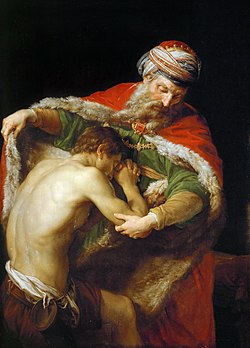
There often come times in each person’s life where life can become muddlesome, sorrowful, and painful. There are other moments of joy, pleasure, luxury, love, and comfort, and of course moments for other things in this life as well. But it seems in all of man, and in all of life there is the subtle whisper of the desire for the Absolute. He Who Is, Is the Absolute, and this we know as Christians, but for many others there is the Absolute, the Transcendent One, whom one may experience the desire for flirtingly in the beautiful view of nature in its tranquility and elegance. But for many, there is no understanding of this desire, and many times a misattribution of it, and we all feel somehow intuitively that that Transcendence though we may have seen it by a strong wind, the overthrowing of mountains, an blazing fire, or another natural event is yet not contained by the wind, nor by the fire, nor by the mountain, nor by any natural event of any kind.
Sometimes when sin clouds our life we lose touch of finding God, but to every soul that has been touched by God, and every soul has in a small way, there is still ever yet that yearning and desire for the Absolute One, but we cannot find Him in the things that come to pass, but only in the embrace of prayer and through the ministry of His holy Church.
I write this post as the lowest of novices in prayer, and as one who struggles to even incline or be inclined to prayer, but I simply wanted to post some thoughts on the reflections of a Carthusian monk, found in the book “
The Wound of Love.” My comments are in plain text, and quotes will be italicized.










